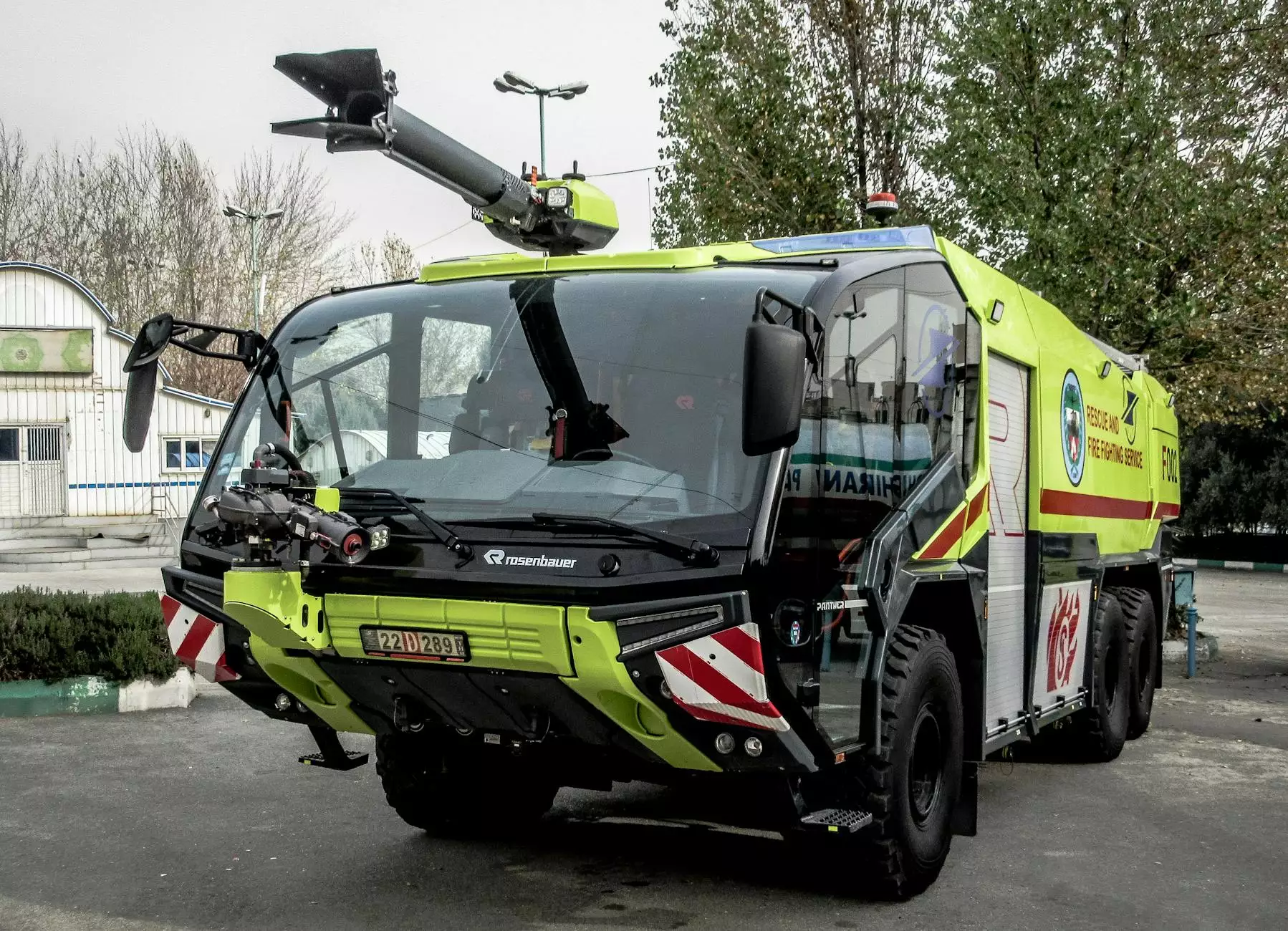Unlocking the Future of Construction and Industry with the Mobile Mixing Plant

In today's dynamic industrial landscape, efficiency, versatility, and innovation are paramount for success. Companies involved in construction, manufacturing, electronics, and 3D printing are constantly seeking cutting-edge solutions that enhance productivity while reducing costs. Among these groundbreaking innovations, the mobile mixing plant stands out as a transformative technology, revolutionizing how raw materials are processed and delivered on-site.
What Is a Mobile Mixing Plant and Why Is It a Game-Changer?
A mobile mixing plant, also known as a portable or truck-mounted mixing station, is a highly adaptable piece of equipment designed for mixing aggregates, cement, water, and other materials on the go. Its mobility allows construction and manufacturing companies to eliminate logistical delays associated with traditional stationary plants. This innovation ensures that high-quality, consistent mixtures are available exactly where and when they are needed, making it an indispensable asset for large-scale projects and continuous operations.
Key Features and Components of a Modern Mobile Mixing Plant
The backbone of a successful mobile mixing plant lies in its advanced features and well-engineered components:
- Integrated Mixing Unit: Combines multiple raw materials efficiently, ensuring uniform mixture quality.
- Transportable Frame: Robust chassis designed for easy mobility across various terrains.
- Automated Control System: Precision control for mix ratios, flow rates, and operational parameters.
- Power Supply Options: Typically powered by diesel engines or electric systems, offering versatility based on site conditions.
- Storage Bins and Hoppers: Multiple compartments for raw materials, facilitating seamless batch processing.
- Versatile Discharge System: Ensures rapid and clean unloading directly into trucks, mixers, or batching stations.
Advantages of Employing a Mobile Mixing Plant in Modern Industries
Incorporating a mobile mixing plant into your operational workflow unlocks numerous benefits, which collectively contribute to increased efficiency, cost savings, and superior quality control:
1. Enhanced Flexibility and Mobility
Unlike stationary plants, a mobile mixing plant can be transported directly to project sites, regardless of their location. This eliminates the need for lengthy material transportation, reduces logistical complexities, and accelerates project timelines.
2. Cost-Effective Operations
The mobility and integration capabilities of these plants enable companies to significantly lower transportation costs, reduce the need for external mixing services, and optimize resource utilization. Moreover, on-site mixing minimizes material wastage and reduces overall project expenses.
3. High-Quality and Consistent Mixtures
Advanced automation and precision controls ensure that each batch of mix meets rigorous specifications. This consistency improves structural integrity, durability, and compliance with industry standards.
4. Quick Deployment and Setup
Modern mobile mixing plants are designed for rapid deployment, with user-friendly interfaces and minimal setup time. This capability is invaluable in emergency repairs, rapid construction projects, or mobile manufacturing units.
5. Versatile Applications
These plants cater to a broad spectrum of industries, including:
- Construction and civil engineering
- Precast concrete manufacturing
- Road and highway projects
- Material recycling and artificial aggregate production
- Electronics manufacturing where precision mixing is critical
- 3D printing materials preparation, especially for large-scale additive manufacturing
Strategic Importance of Mobile Mixing Plant in Electronics and 3D Printing Domains
While primarily associated with construction, the versatility of mobile mixing plant technology extends into cutting-edge fields like electronics and 3D printing. Precision and consistency are crucial in these sectors, and mobile mixing units are adapting to meet these specialized demands.
Electronics Industry
In electronics manufacturing, materials such as conductive pastes, adhesives, and encapsulants require meticulous mixing with exact ratios. Portable mixing solutions enable on-demand preparation of these substances, ensuring purity, uniformity, and adherence to strict quality standards—vital factors for high-performance electronic components.
3D Printing and Additive Manufacturing
The rise of 3D printing has driven demand for custom, high-quality materials that can be prepared and customized on-site. Mobile mixing plants facilitate the preparation of large volumes of mixed filament or powder-based materials, boosting efficiency in manufacturing complex geometries and prototypes. These plants support continuous operation, reduce downtime, and enable experimentation with new material formulations without reliance on centralized production facilities.
How to Choose the Perfect Mobile Mixing Plant for Your Business
Selecting the right mobile mixing plant requires careful consideration of several factors:
- Capacity Needs: Determine the volume of materials processed daily or per batch to match your operational scale.
- Mobility Requirements: Assess terrain and transportation infrastructure to select suitable chassis and mobility features.
- Automation Level: Choose between manual, semi-automated, or fully automated control systems based on your expertise and requirements.
- Power Options: Decide whether electric, diesel, or hybrid power sources align with your infrastructure and environmental considerations.
- Material Compatibility: Ensure the plant accommodates the specific raw materials and additives used in your industry.
- Budget Constraints: Balance initial investment with long-term operational savings and ROI.
Leading Manufacturers and Industry Leaders in Mobile Mixing Plant Solutions
The marketplace offers diverse options, but choosing a reputable manufacturer guarantees durability, technological innovation, and after-sales support. For instance, polygonmach.com stands out as a global leader providing state-of-the-art mobile mixing plant solutions tailored for multiple industries. Their plants incorporate advanced automation, superior materials, and customizable configurations to suit specific project needs.
Future Trends and Innovations in Mobile Mixing Plants
The evolution of mobile mixing plants continues at a rapid pace, driven by technological advances:
- Integration with IoT and Industry 4.0: Real-time data monitoring, predictive maintenance, and remote control enhance efficiency.
- Eco-Friendly Designs: Emission reduction, energy-efficient motors, and sustainable raw material management support environmentally conscious operations.
- Enhanced Mobility and Compact Designs: Smaller footprints combined with increased capacity facilitate easy deployment in confined or challenging environments.
- Material Innovation: Integration with 3D printing materials broadens the scope of manufacturing capabilities.
Conclusion: Embracing the Power of Mobile Mixing Plant for Industry Success
Adopting a mobile mixing plant is not merely a technological upgrade; it is a strategic move toward operational excellence. From construction projects demanding rapid deployment to electronics and 3D printing requiring precise material handling, the mobile mixing plant paves the way for increased productivity, cost savings, and innovative manufacturing practices.
By investing in cutting-edge solutions from established providers like polygonmach.com, your business can stay ahead of industry trends, meet evolving customer demands, and achieve a competitive advantage in a rapidly changing market landscape.
Enhance Your Operations Today with a State-of-the-Art Mobile Mixing Plant
Whether you are expanding your current operations or setting up a new manufacturing facility, integrating a mobile mixing plant is a strategic decision that offers unmatched flexibility and efficiency. Contact industry experts to explore tailored solutions that align with your specific operational goals and industry standards.









